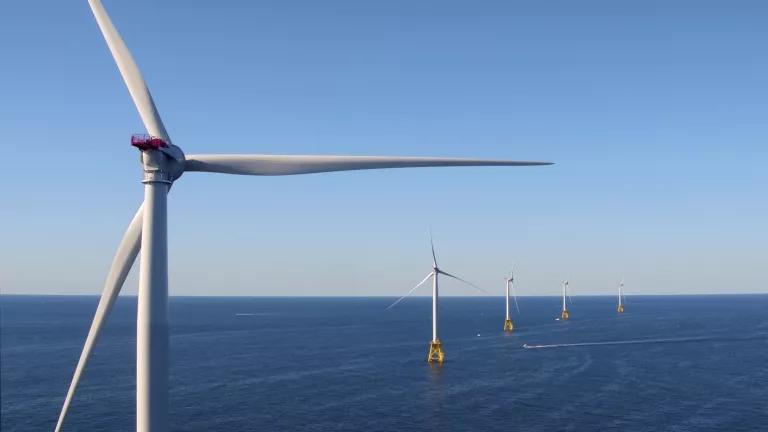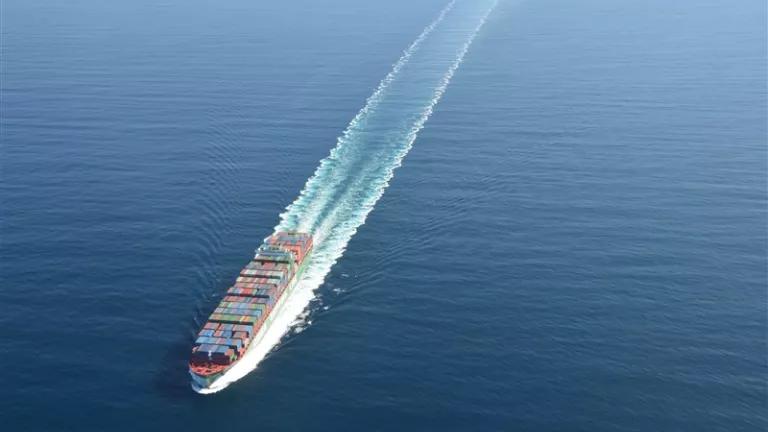New Bill Takes a Holistic Approach to Ocean-Climate Action
Is the fate of the climate tied to the fate of the waters that cover 70 percent of our planet? The evidence that it is could, well, fill an ocean.

Is the fate of the climate tied to the fate of the waters that cover 70 percent of our planet? The evidence that it is could, well, fill an ocean.
But you wouldn’t know that by looking at the current approaches to address climate change in the United States. Even policymakers eager to act on climate have repeatedly failed to develop laws and regulations that consider federal ocean management and climate mitigation together.
Now the political tides may be shifting. This week, Rep. Raul Grijalva, D-Ariz., the chairman of the House Natural Resources Committee, introduced the Ocean-Based Climate Solutions Act of 2020, a landmark effort to both address the ocean impacts of climate change and reform federal ocean management to better account for climate mitigation.
The legislation is a first-of-its-kind attempt to marshal the power of the oceans to combat climate change—while at the same time addressing the effects of climate change on the health and vitality of marine ecosystems.
The bill is ambitious, especially in an era when climate science is under attack. Among other things, it would prohibit oil and gas leasing in all areas of the Outer Continental Shelf, promote offshore wind energy, expand ocean data collection and monitoring, enhance the resilience of marine ecosystems, and restrict boat speeds in certain areas to protect marine mammals.
Importantly, the bill provides a navigation chart for how future ocean and climate policy—until now treated very much separately—could, and should, be developed together.
As the earth gets measurably hotter, each year breaking records set the year before, climate change is transforming the ocean. But it also holds the power to mitigate it.
Oceans absorb 93 percent of the heat trapped by greenhouse gases and one-third of the carbon dioxide given off by the burning of fossil fuels. But that has made waters hotter and more acidic.
Fish—cold blooded and temperature sensitive—are responding to warming ocean waters by moving toward the poles or to deeper waters. Harmful algal blooms have forced the closing of profitable fisheries. Coral reefs, the natural barriers that protect communities from storm surge and erosion, face extinction.
In ways large and small, the ocean drives the planet’s climate and makes earth habitable. In turn, the climate influences the temperature, chemistry, circulation and health of marine ecosystems.
Up to now, solutions have been piecemeal. Policymakers seeking clean, renewable energy development have promoted offshore wind farms that create jobs and reduce reliance on fossil fuels. But they have not integrated that vision with designs that reduce the impact on marine life of hammering metal piles that support the wind turbines into the ocean floor.
Moreover, actions taken to increase the resilience of marine ecosystems to climate change have been stymied. In 2016, President Obama established the Northeast Canyons and Seamounts—the first and only marine national monument off the continental United States. This 5,000 square mile area, 150 miles from the coast of New England, is an expanse of deep underwater canyons and diverse marine life. But the Trump administration has tried to scale back this protection, rather than viewing it as an essential building block of ocean resiliency in the face of a warming climate.
As our decision makers jumpstart federal climate policy ambitions, they need to move beyond that sort of single-stream climate change policymaking.
Climate change is already having immense impacts on our seas, land and air. We need bold, holistic, integrated actions to enhance the resilience of our natural systems. When it comes to our oceans, that means protecting their fragile ecosystems from climate change while at the same time addressing climate change by harnessing the power the oceans hold deep.




